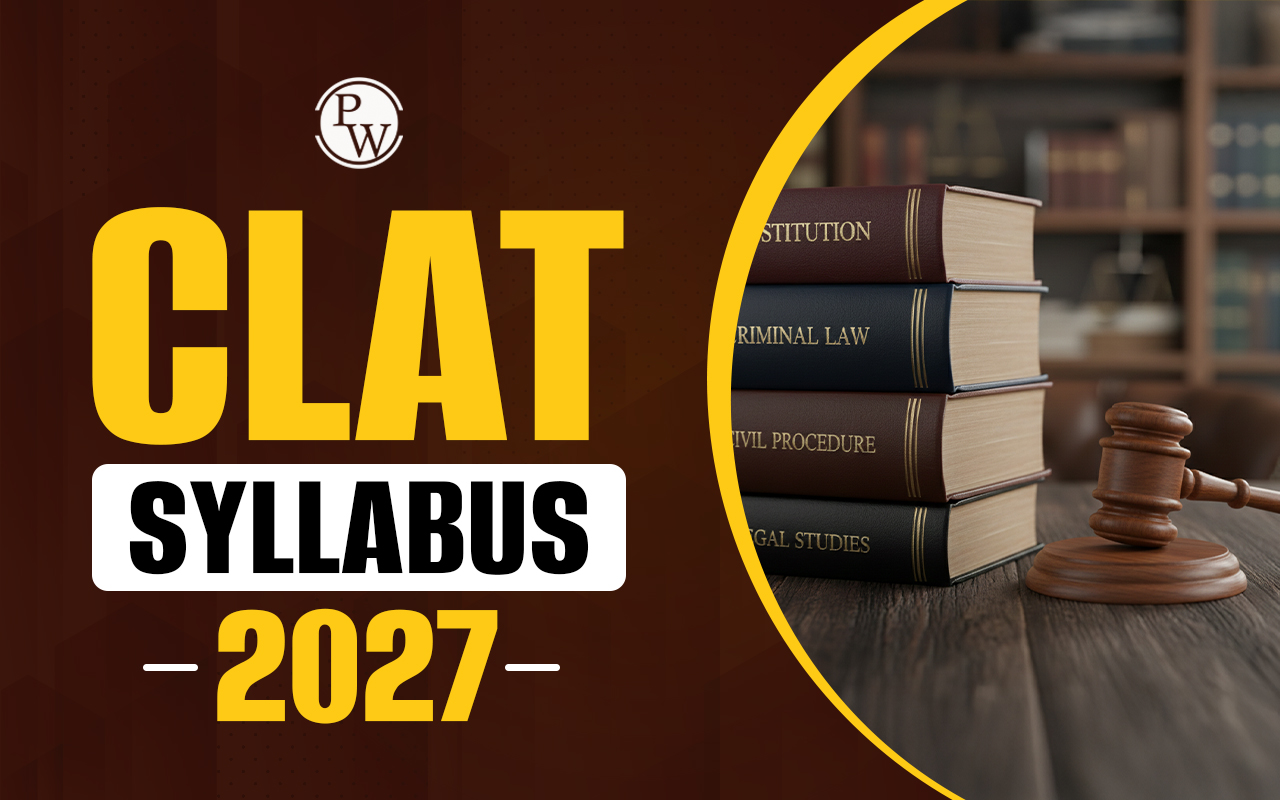
Difference Between Law and Constitution
Difference Between Law and Constitution: In any legal system, law and constitution are like two important building blocks. Even though they are connected, they have different jobs and qualities. The big difference between the Constitution and the Law is that the Constitution includes all the rules and laws for a whole country in one big document. On the other hand, the Law usually talks about just one rule or law made by the government to help the people.
If there's ever a problem between a rule in the Constitution and a regular law, the regular law wins, and the Constitution rule doesn't count anymore. This article is here to help you understand these differences. It will explain the special roles and functions of law and constitution. If you're curious about how they are not the same, give this article a read for more details.
What is Constitution?
A constitution is like a big rulebook for a country. It's a really important legal document that sets up how the government works, what rights people have, and how everyone should get along. It's the main law that all other laws must follow. The constitution is there to make sure the government is fair and doesn't take away people's rights.
There are two types of constitutions - written and unwritten. The Indian Constitution is an example of a written one. It's super long with 448 articles, 25 parts, and 12 schedules, making it the longest constitution in the world. On the other hand, the United Kingdom has an unwritten constitution. Even though it's not all in one document, it's based on traditions and rules that have been around for a long time. So, a constitution is like a big guidebook to help a country run smoothly and fairly.
What is Law?
Law is like a set of rules made by those in charge to keep everything in a community running smoothly. It's like a big framework that tells people and groups what they can and can't do. The point of these rules is to make sure everything is fair, everyone is treated right, and people are held responsible for their actions. The goal of the law is to look out for people's rights, solve problems, and keep everything in order. There are different kinds of law for different situations, like criminal law for bad actions, civil law for disputes, and more. Basically, law is there to make sure everyone is treated the same and to make the world a fair and just place.
| Aspect | Constitution | Law |
|---|---|---|
| Definition | A supreme legal document setting up the main rules for a country's governance. | Specific rules made by the government to govern various aspects of society. |
| Scope | Focuses on big-picture things like the organization of the government and protecting citizens' rights. | Deals with specific issues such as crimes, contracts, and everyday matters. |
| Hierarchy | Holds the highest legal authority, prevailing over all other laws. | Subject to the constitution; laws must not contradict it and can be invalidated by the courts if they do. |
| Amendment | Changing requires special procedures, such as a constitutional amendment process or a significant majority vote. | Can be amended more easily through the regular legislative process. |
| Permanence | Meant to be enduring, providing stability to the legal system. | May change more frequently to address evolving societal needs and issues. |
| Flexibility | Broad and flexible, adapting to changing circumstances and interpretations over time. | More specific and flexible in addressing immediate issues, allowing for timely adjustments. |
| Source of Authority | Derives authority from the will of the people or a constituent assembly, symbolizing collective agreement. | Derives authority from legislative bodies or authorities responsible for enactment and implementation. |
| Examples | Constitution of the United States, Indian Constitution, Constitution of South Africa. | Criminal Code, Labor Laws, Environmental Protection Act, Contract Law, etc. |
Difference between Constitution and Law Definition
When we study how a country is run, we might mix up the words 'Constitution' and 'Law' or use them interchangeably. But actually, these words mean different things. The Constitution is like the boss law of a country, the most important one. It sets up the main ideas and structure of the government. On the other hand, laws are like specific rules made to follow the main ideas of the Constitution.
The Constitution is the big boss, guiding the whole legal system and how the country is run. Laws are more detailed and can change through a special process decided by the lawmakers.
Law: Laws are like the rules we follow in our society. They tell us how we should behave, and there are people who make sure we follow these rules. Sometimes, groups like parliaments or congresses make these rules, and other times, judges decide based on what happened before.
Constitution: A constitution is a super important rulebook for a whole country. It's like the boss of all the rules. It says how the government should work, what rights people have, and how everyone should treat each other. The constitution is like the foundation of the country's rule system.
Law Vs Constitution
Law: Laws come from the rules given by the constitution or other laws. They have an order, where the most important laws are followed more than the less important ones. For instance, a rule made by the government can be changed by a law passed by the lawmakers.
Constitution: The constitution is like the boss of all the rules. Every other law or rule must follow what the constitution says. If a law doesn't match with the constitution, the judges can say it's not allowed and cancel it. So, the constitution is like the top boss making sure all the rules are fair and right.
Difference between Laws and Constitution How They Work
Laws: Laws cover many different topics and can change depending on where you are. They can be about crimes, agreements, accidents, and more. Laws can be made, canceled, or changed to fit what people need and believe.
Constitution: Constitutions are like the big picture, not specific rules. They aim to show important ideas and rights without giving detailed instructions. Changing the constitution is a big deal and needs a careful process, like making amendments, to make sure things stay stable and fair.
How Law and Constitution Are Used and Enforced
Law: The government's police and courts usually make sure laws are followed. Breaking laws can lead to punishments like fines or going to jail.
Constitution: The constitution doesn't directly make people do things, but it guides how laws should be understood and followed. Special courts check if laws match the constitution and can stop any rules that go against it. So, laws and the constitution work together to make sure things are fair and right.
Administrative Law and Constitutional Law
The big difference between Administrative Law and Constitutional Law is that Administrative Law is like the helper, and Constitutional Law is the boss. Constitutional Law is the top law in India, like the chief law, and everyone has to follow it. It looks after all the important parts of the government. On the other hand, Administrative Law is about how the government works in action, like when it's doing things. So, while Constitutional Law is the main leader, Administrative Law helps with how things get done in the government.
What is Constitutional Law?
Constitutional law is all about the important rules and powers written down in a constitution or a special legal document. It covers the rights of people and the powers of different parts of the government.
Constitutional law is really big, and many rules about how the government does things are included in it. So, Constitutional law is the big picture that covers a lot of things.
What is Administrative Law?
Administrative law is about how the government sets up its groups and how these groups do their work. It decides what powers these groups have, what rules they make, and how they connect with the public and other government groups.
In a busy and organized society, the relationship between the public and the government can get complicated. So, Administrative law is like a rulebook needed to make things clear and fair. It helps to make sure the government does its job right and doesn't misuse its power.
Difference between Administrative Law and Constitutional Law
The big difference between administrative law and constitutional law is what they focus on. Constitutional law deals with the big picture, like how the government is set up and the rights of people. Administrative law, on the other hand, is more about how the government actually runs day-to-day.
Constitutional law covers a lot, like people's rights and how the government works. It's like the main law that everyone has to follow. Administrative law is more specific, dealing with the details of how the government organs do their jobs.
In simple terms:
- Constitutional law is like the boss law, covering everything and telling the government how to be fair and right.
- Administrative law is like the helper law, making sure the government actually follows the boss law and does its job the right way.
Constitutional law is usually written down in one big document, but administrative law isn't always in one place. Even though it's not all in one place, administrative law is still important because it helps put the big ideas from constitutional law into action.
So, in a nutshell, constitutional law is the big plan, and administrative law is the detailed action to make sure the plan works.
Difference Between Law and Constitution Conclusion
Law and constitution are like two important parts of the legal system, working together but doing different jobs. Laws are the rules we follow every day, and they can change. On the other hand, the constitution is like the boss of all rules. It's the most important law, setting up how the government works and making sure our basic rights are protected. Knowing the difference between law and constitution helps us understand how legal systems work worldwide.
| Other Related Links | |
| DU LLB Merit List 2023 | SLAT 2024 |
Difference Between Law and Constitution FAQs
Is law defined in the Constitution?
How many laws are in constitution?
What is the difference between rule of law and constitutionalism?
What is the difference between a law and a provision?
Is Constitution of India a law?










